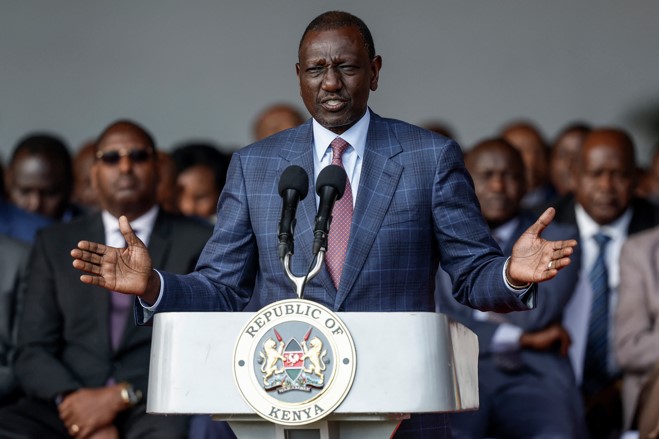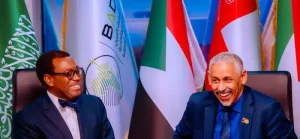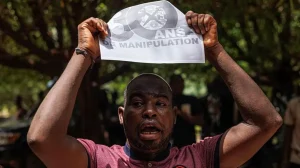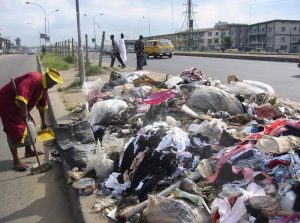
Kenyan President William Ruto has reignited political tensions after donating $150,000 (20 million shillings) to a Nairobi church, months after declaring that such contributions encourage corruption.
The donation to Jesus Winner Ministry Church triggered protests, with demonstrators gathering outside the church a week later, demanding the return of what they called “stolen tax money.” Police responded by dispersing them with tear gas.
Church donations are a long-standing tradition in Kenya, where politicians frequently use religious platforms to connect with the electorate in the predominantly Christian country. However, the practice has become more divisive following last year’s mass protests against tax hikes, corruption, and police brutality.
In response to public outcry, Ruto had previously banned government officials from participating in church fundraisers, stating, “No state officer or public servant shall participate in public contributions or any harambees going forward.” At the time, he acknowledged that the tradition was fueling corruption.
Despite this, Ruto has continued to make large donations. While police were dispersing protesters outside Jesus Winner Ministry Church, the president was at another church in Eldoret, pledging an additional 20 million shillings and promising to raise 100 million for Jesus Winner.
Dismissing his critics, Ruto described those questioning his donations as “people who don’t believe in God.” The government insists the money comes from the president’s personal funds, but many remain skeptical.
“Where is this money coming from? Bring us the receipts,” said Mwabili Mwagodi, an activist leading the “Occupy Church” movement, which seeks to separate religion from politics.
Some religious leaders have defended Ruto’s actions, calling his contributions a “Godly idea.” However, critics argue that such donations could serve as a means of money laundering or as a tool for political influence.
Nairobi-based lawyer Javas Bigambo stated, “Some churches use their huge congregations and platforms to give politicians political capital. It has been encouraging corruption.”
The controversy has prompted the National Council of Churches of Kenya to bar politicians from using pulpits for monetary pledges or political speeches. Nonetheless, a defiant Ruto has vowed to continue supporting churches financially, further fueling debate over the intersection of faith and politics in Kenya.








